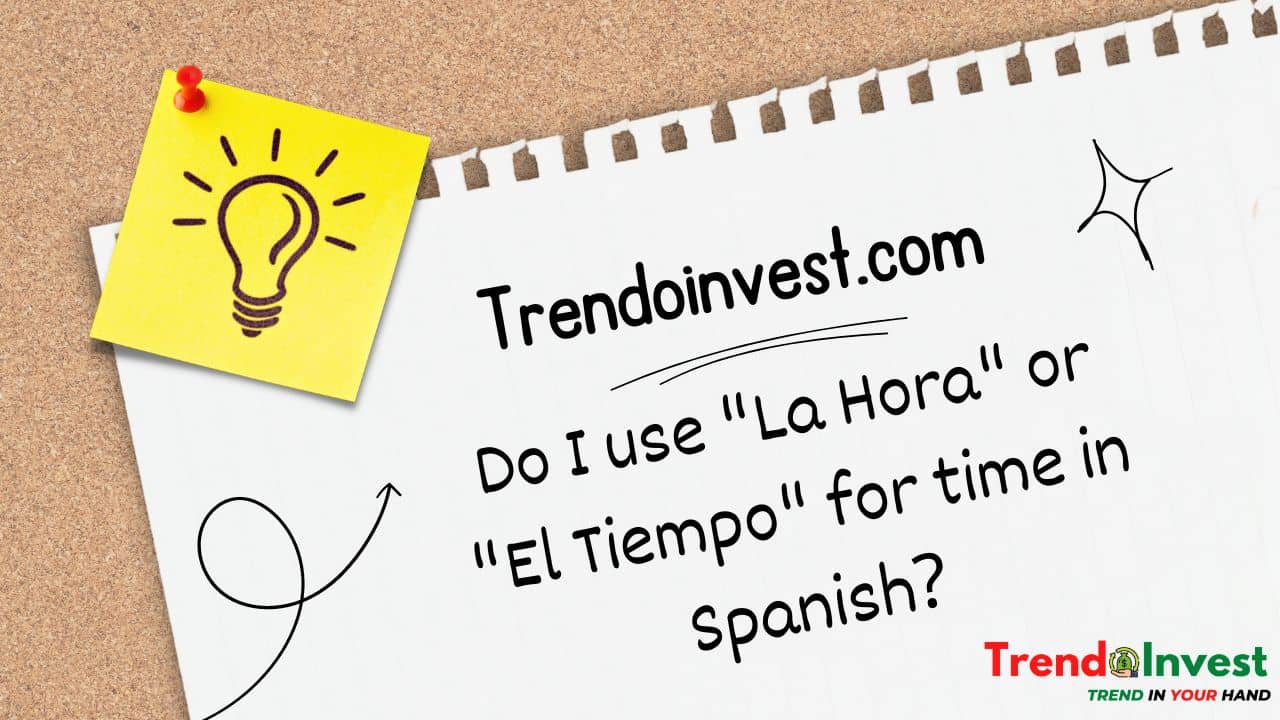When you’re learning Spanish, you might wonder whether to say “la hora” or “el tiempo” when talking about time. It’s a common question for Spanish learners. Knowing when to use each one is really important for speaking and writing correctly. In this guide, we’ll explain the difference between “la hora” and “el tiempo” so you can use them correctly every time.
Understanding “La Hora”
“La hora” is a Spanish term used to denote time in a specific hour or moment. It is primarily used when referring to the time of day, such as hours, minutes, and seconds. For example, “Son las tres de la tarde” translates to “It’s three o’clock in the afternoon,” where “las tres” refers to the hour, and “de la tarde” indicates the time of day.
When discussing time in a general sense, especially when specifying hours, “la hora” is the appropriate term to use. Whether it’s scheduling appointments, discussing daily routines, or arranging meetings, “la hora” is the go-to term for indicating time in Spanish.
Exploring “El Tiempo”
On the other hand, “el tiempo” in Spanish primarily translates to “the weather” or “the time” in a broader sense. While “la hora” focuses on specific hours and moments, “el tiempo” encompasses a wider scope, including weather conditions, duration, or periods of time.
For instance, “¿Qué tiempo hace hoy?” translates to “What’s the weather like today?” Here, “el tiempo” refers to weather conditions, indicating a broader concept beyond the specific hour of the day.
Differentiating Usage
To distinguish between “la hora” or “el tiempo” effectively, consider the context in which the term is used. If you are referring to a particular time of day or hour, “la hora” is the appropriate choice. However, if the discussion revolves around weather conditions, duration, or a general sense of time, “el tiempo” would be more fitting.
Examples in Context
Let’s explore some examples to illustrate the usage of both terms in different contexts:
- Using “La Hora”:
- “Necesito saber la hora de la reunión.” (I need to know the time of the meeting.)
- “¿Podrías decirme la hora exacta?” (Could you tell me the exact time?)
- “La hora de llegada está programada para las nueve de la mañana.” (The arrival time is scheduled for nine in the morning.)
- Using “El Tiempo”:
- “El tiempo en esta región es impredecible.” (The weather in this region is unpredictable.)
- “¿Cómo ha estado el tiempo durante tu viaje?” (How has the weather been during your trip?)
- “El tiempo de entrega del proyecto se extenderá hasta la próxima semana.” (The project delivery time will be extended until next week.)
Conclusion
In conclusion, understanding when to use “la hora” or “el tiempo” in Spanish is essential for effective communication. While “la hora” refers to specific hours and moments of the day, “el tiempo” encompasses a broader concept, including weather conditions and periods of time. By grasping the distinction between these terms and applying them correctly in context, you can enhance your proficiency in Spanish language usage.











